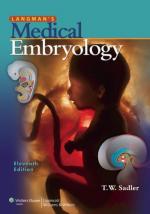|
This section contains 1,447 words (approx. 5 pages at 300 words per page) |

|
The study of embryology, the science that deals with the formation and development of the embryo and fetus, can be traced back to the ancient Greek philosophers. Originally, embryology was part of the field known as "generation," a term that also encompassed studies of reproduction, development and differentiation, regeneration of parts, and genetics. Generation described the means by which new animals or plants came into existence. The ancients believed that new organisms could arise through sexual reproduction, asexual reproduction, or spontaneous generation. As early as the sixth century B.C., Greek physicians and philosophers suggested using the developing chick egg as a way of investigating embryology.
Aristotle (384-322 B.C.) described the two historically important models of development known as preformation and epigenesis. According to preformationist theories, an embryo or miniature individual preexists in either the mother's egg or the father's semen and begins to grow when properly...
|
This section contains 1,447 words (approx. 5 pages at 300 words per page) |

|


